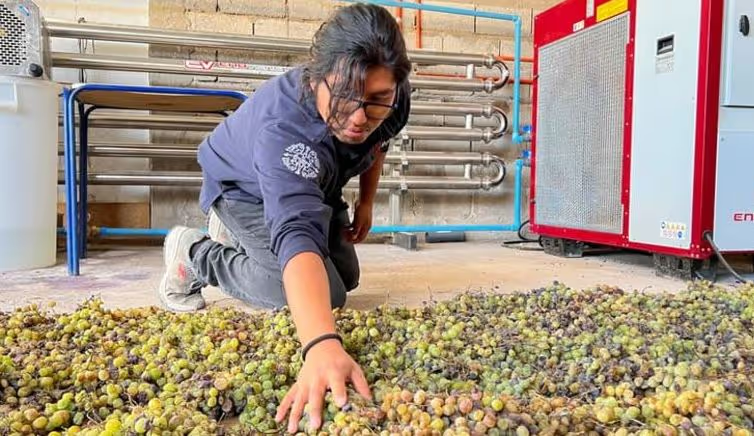.png)
Up at 3 600 meters (11 800 feet) above sea level, in between highland peaks with scarce vegetation, the grapes from Caracoles vineyard withstand extreme temperature fluctuations and harsh weather. Despite that, Cecilia Cruz, who has managed the vineyard for the last six years, says she is used to the desert’s rough conditions.
“For me it is not difficult because I’m raised on the land,” said Cruz, who is 67. “This is the future for my children also for later, when I am not here, for them. I am very proud.”
Indigenous Atacama people like Cruz have long grown other crops and used trial-and-error to figure out how to develop high-altitude wines. Cruz is one of 18 producers that form part of the Lickanantay Farmer Cooperative which makes the wine, called Allyu.
The group produces about 12 500 bottles of Allyu each year. The wine has won international awards and the vineyards are close to the tourist destination of San Pedro de Atacama.
Despite their success, Cruz says there are difficulties with grape growth that she thinks could be solved by specialists visiting the vineyard. But according to Allyu’s oenologist, Fabian Munoz, other challenges, like intense sun, have become an asset by giving the wine a unique profile.
“We have 360 days of sun, ultraviolet radiation, we have very cold nights, this makes our red grapes generate a thicker skin,” Munoz said.
“Therefore, naturally from the place, we have red wines with a very good color, with very good tannin, a very versatile aroma that makes our wines very complex, have many aromas, have many flavors,” he added.
Thank you Reuters for this article

.png)
Contribute to your future, a Non Profit Organization and buy us a Coffee with 3 simple clicks and a minute of your time. Imagine what we can do together.
To thank you, we will call you personally.
This is the amount that will be distributed amongst the current shareholders.
Current Share Holders
1102/500,000